中华人民共和国法官法(2019修订)(中英文对照版)
《中华人民共和国法官法》已由中华人民共和国第十三届全国人民代表大会常务委员会第十次会议于2019年4月23日修订通过,现将修订后的《中华人民共和国法官法》公布,自2019年10月1日起施行。
法律文本
中华人民共和国法官法(2019修订)
Judges Law of the People's Republic of China (Amended in 2019)
主席令第二十七号
Presidential Decree No. 27
《中华人民共和国法官法》已由中华人民共和国第十三届全国人民代表大会常务委员会第十次会议于2019年4月23日修订通过,现将修订后的《中华人民共和国法官法》公布,自2019年10月1日起施行。
The Judges Law of the People's Republic of China, revised and adopted at the 10th Session of the Standing Committee of the 13th National People's Congress of the People's Republic of China on April 23, 2019, is hereby promulgated for implementation as of October 1, 2019.
中华人民共和国主席 习近平
President Xi Jinping
2019年4月23日
April 23, 2019
(1995年2月28日第八届全国人民代表大会常务委员会第十二次会议通过 根据2001年6月30日第九届全国人民代表大会常务委员会第二十二次会议《关于修改〈中华人民共和国法官法〉的决定》第一次修正 根据2017年9月1日第十二届全国人民代表大会常务委员会第二十九次会议《关于修改〈中华人民共和国法官法〉等八部法律的决定》第二次修正 2019年4月23日第十三届全国人民代表大会常务委员会第十次会议修订)
(Adopted at the 12th Session of the Standing Committee of the Eighth National People's Congress on February 28, 1995; amended for the first time according to the Decision on Amending the Judges Law of the People's Republic of China at the 22nd Session of the Standing Committee of the Ninth National People's Congress on June 30, 2001; amended for the second time according to the Decision on Amending Eight Laws Including the Judges Law of the People's Republic of China at the 29th Session of the Standing Committee of the 12th National People's Congress on September 1, 2017; and revised at the 10th Session of the Standing Committee of the 13th National People's Congress on April 23, 2019)
第一章 总 则
Chapter 1 General Provisions
第一条 为了全面推进高素质法官队伍建设,加强对法官的管理和监督,维护法官合法权益,保障人民法院依法独立行使审判权,保障法官依法履行职责,保障司法公正,根据宪法,制定本法。
Article 1 This Law is enacted in accordance with the Constitution in order to comprehensively promote the building of a contingent of high-quality judges, to strengthen the administration and supervision of judges, to safeguard the lawful rights and interests of judges, to ensure that the People's Courts independently exercise judicial authority according to law and that judges perform their functions and duties according to law, and to ensure the judicial justice.
第二条 法官是依法行使国家审判权的审判人员,包括最高人民法院、地方各级人民法院和军事法院等专门人民法院的院长、副院长、审判委员会委员、庭长、副庭长和审判员。
Article 2 Judges are the judicial personnel who exercise the judicial authority of the State according to law, including presidents, vice presidents, members of judicial committees, chief judges and associate chief judges of divisions and judges of the Supreme People's Court, local People's Courts at various levels and special People's Courts such as military courts.
第三条 法官必须忠实执行宪法和法律,维护社会公平正义,全心全意为人民服务。
Article 3 Judges must faithfully implement the Constitution and laws, safeguard social fairness and justice, and serve the people whole-heartedly.
第四条 法官应当公正对待当事人和其他诉讼参与人,对一切个人和组织在适用法律上一律平等。
Article 4. A judge should treat all the parties and participants impartially and treat all the individuals and organizations equally.
第五条 法官应当勤勉尽责,清正廉明,恪守职业道德。
Article 5 Judges shall be diligent and responsible, honest and clean, and abide by professional ethics.
第六条 法官审判案件,应当以事实为根据,以法律为准绳,秉持客观公正的立场。
Article 6. A judge should base his case on facts, take law as criterion and adhere to the principle of objectiveness and fairness.
第七条 法官依法履行职责,受法律保护,不受行政机关、社会团体和个人的干涉。
Article 7 Judges, when performing their functions and duties according to law, shall be protected by law and not be interfered with by administrative organs, public organizations or individuals.
第二章 法官的职责、义务和权利
Chapter II Functions, Duties, Obligations and Rights of Judges
第八条 法官的职责:
Article 8 The duties of judges are:
(一)依法参加合议庭审判或者独任审判刑事、民事、行政诉讼以及国家赔偿等案件;
1. participating in the trial of a collegial panel or a sole judge in accordance with the law to hear criminal, civil or administrative lawsuits and State compensation cases;
(二)依法办理引渡、司法协助等案件;
2. handle cases of extradition and judicial assistance according to law; and
(三)法律规定的其他职责。
(III) other functions and duties as provided by law.
法官在职权范围内对所办理的案件负责。
Judges shall be responsible for cases they handle within the scope of their functions and powers.
第九条 人民法院院长、副院长、审判委员会委员、庭长、副庭长除履行审判职责外,还应当履行与其职务相适应的职责。
Article 9 The president, vice-presidents, members of the judicial committee, chief judges and associate chief judges of divisions of the People's Courts shall, in addition to the judicial functions and duties, perform other functions and duties commensurate with their posts.
第十条 法官应当履行下列义务:
Article 10 Judges shall perform the following obligations:
(一)严格遵守宪法和法律;
1. strictly observing the Constitution and laws;
(二)秉公办案,不得徇私枉法;
(II) To handle cases impartially, and not to bend law for personal gain;
(三)依法保障当事人和其他诉讼参与人的诉讼权利;
3. protecting the litigation rights of the parties and other litigation participants in accordance with the law;
(四)维护国家利益、社会公共利益,维护个人和组织的合法权益;
(IV) safeguarding the national interests and public interests, and protecting the legitimate rights and interests of individuals and organizations;
(五)保守国家秘密和审判工作秘密,对履行职责中知悉的商业秘密和个人隐私予以保密;
(V) to keep State secrets and the secrets of judicial work and to keep confidential the commercial secrets and personal privacy known in performing duties;
(六)依法接受法律监督和人民群众监督;
(VI) accepting legal supervision and supervision by the masses in accordance with the law;
(七)通过依法办理案件以案释法,增强全民法治观念,推进法治社会建设;
(VII) Enhance the whole people's awareness of the rule of law by handling cases according to the law to promote the construction of a society ruled by law; and
(八)法律规定的其他义务。
(VIII) Other obligations stipulated by laws.
第十一条 法官享有下列权利:
Article 11 Judges shall enjoy the following rights:
(一)履行法官职责应当具有的职权和工作条件;
1. to have the power and working conditions which are essential to the performance of functions and duties of judges;
(二)非因法定事由、非经法定程序,不被调离、免职、降职、辞退或者处分;
(II) to be not removed from the post, demoted, dismissed, or given a sanction without statutory basis and without going through statutory procedures;
(三)履行法官职责应当享有的职业保障和福利待遇;
3. the occupational security and welfare benefits to be enjoyed by judges performing their functions and duties;
(四)人身、财产和住所安全受法律保护;
(IV) to enjoy safety of the person, property and residence as ensured by law;
(五)提出申诉或者控告;
(V) To lodge petitions or complaints; and
(六)法律规定的其他权利。
(VI) other rights as provided for by law.
第三章 法官的条件和遴选
Chapter III Requirements for and selection of judges
第十二条 担任法官必须具备下列条件:
Article 12 A judge must possess the following qualifications:
(一)具有中华人民共和国国籍;
1. Having the nationality of the People's Republic of China;
(二)拥护中华人民共和国宪法,拥护中国共产党领导和社会主义制度;
2. uphold the Constitution of the People's Republic of China, the leadership of the Communist Party of China, and the socialist system;
(三)具有良好的政治、业务素质和道德品行;
3. to have fine political, professional quality and moral conduct;
(四)具有正常履行职责的身体条件;
(IV) Being physically able to perform normal duties;
(五)具备普通高等学校法学类本科学历并获得学士及以上学位;或者普通高等学校非法学类本科及以上学历并获得法律硕士、法学硕士及以上学位;或者普通高等学校非法学类本科及以上学历,获得其他相应学位,并具有法律专业知识;
(V) having accepted undergraduate education of law major and obtained a bachelor's degree or above in law from a regular institution of higher learning; or having accepted undergraduate education or above of a non-law major and obtained a Master of Law (Master of Law) degree or above in a regular institution of higher learning; or having accepted undergraduate education or above of a non-law major in a regular institution of higher learning, obtained other appropriate degrees and had the professional knowledge of law; and
(六)从事法律工作满五年。其中获得法律硕士、法学硕士学位,或者获得法学博士学位的,从事法律工作的年限可以分别放宽至四年、三年;
(VI) They have been doing legal work for five years. For an individual who has obtained a Master of Laws degree or a Master of Laws degree, or has obtained a Doctor of Laws degree, the restriction on the number of years he or she may have engaged in legal work may be relaxed to four, or three, respectively; and
(七)初任法官应当通过国家统一法律职业资格考试取得法律职业资格。
(VII) Persons to be appointed judges for the first time shall pass the national unified legal professional qualification exam and obtain the legal professional qualification.
适用前款第五项规定的学历条件确有困难的地方,经最高人民法院审核确定,在一定期限内,可以将担任法官的学历条件放宽为高等学校本科毕业。
Where it is really difficult to apply the provisions in sub-paragraph (5) of the preceding paragraph regarding the academic qualifications, such qualifications for judges may, upon examination and approval by the Supreme People's Court and within a limited period of time, be relegated to include graduates from institutions of higher learning.
第十三条 下列人员不得担任法官:
Article 13 The following persons shall not hold the post of a judge:
(一)因犯罪受过刑事处罚的;
1. Having been imposed on a criminal punishment;
(二)被开除公职的;
2. Having been discharged from public employment;
(三)被吊销律师、公证员执业证书或者被仲裁委员会除名的;
(III) having his or her practicing certificate for a lawyer or a notary public revoked or being removed from an arbitration commission;
(四)有法律规定的其他情形的。
4. Other circumstances stipulated by the law arise.
第十四条 初任法官采用考试、考核的办法,按照德才兼备的标准,从具备法官条件的人员中择优提出人选。
Article 14 Persons to be appointed judges for the first time shall be selected through examination or appraisal from among the best qualified for the post, in conformity with the standards of having both ability and political integrity.
人民法院的院长应当具有法学专业知识和法律职业经历。副院长、审判委员会委员应当从法官、检察官或者其他具备法官条件的人员中产生。
The president of a people's court shall have professional knowledge of law and experience in legal profession. Vice-presidents, members of the judicial committee shall be selected from judges, procurators or other persons who are qualified for the post of judge.
第十五条 人民法院可以根据审判工作需要,从律师或者法学教学、研究人员等从事法律职业的人员中公开选拔法官。
Article 15 A people's court may publicly select judges from lawyers, law teachers, researchers and other personnel engaged in the legal profession based on the needs of the judicial work.
除应当具备法官任职条件外,参加公开选拔的律师应当实际执业不少于五年,执业经验丰富,从业声誉良好,参加公开选拔的法学教学、研究人员应当具有中级以上职称,从事教学、研究工作五年以上,有突出研究能力和相应研究成果。
In addition to meeting the requirements for serving as a judge, a lawyer participating in the open selection shall have actually practiced law for not less than five years with rich practice experience and good practice reputation, the law teaching and research personnel participating in the open selection shall have the intermediate professional title or above, have been engaged in teaching and research for not less than five years, and have outstanding research capability and corresponding research results.
第十六条 省、自治区、直辖市设立法官遴选委员会,负责初任法官人选专业能力的审核。
Article 16 All provinces, autonomous regions and municipalities directly under the Central Government shall set up their respective judge selection committees, which shall be responsible for the examination and verification of the professional abilities of the candidates for initial judges.
省级法官遴选委员会的组成人员应当包括地方各级人民法院法官代表、其他从事法律职业的人员和有关方面代表,其中法官代表不少于三分之一。
The members of a provincial judges selection committee shall include judges representatives of local people's courts at all levels, personnel engaged in the legal profession and representatives from the relevant sectors, among whom, judges representatives shall account for at least one third of the total members.
省级法官遴选委员会的日常工作由高级人民法院的内设职能部门承担。
The routine work of a provincial-level judge selection committee shall be undertaken by the internal functional department of a higher people's court.
遴选最高人民法院法官应当设立最高人民法院法官遴选委员会,负责法官人选专业能力的审核。
The selection of judges of the Supreme People's Court shall set up a commission for selection of judges of the Supreme People's Court, which shall be responsible for the examination of the professional capacities of the candidates for judges.
第十七条 初任法官一般到基层人民法院任职。上级人民法院法官一般逐级遴选;最高人民法院和高级人民法院法官可以从下两级人民法院遴选。参加上级人民法院遴选的法官应当在下级人民法院担任法官一定年限,并具有遴选职位相关工作经历。
Article 17 Judges to be appointed for the first time shall generally be appointed by the grassroots people's courts. Judges of people's courts at higher levels are generally selected level by level; and the Supreme People's Court and higher people's courts may select judges from people's courts at lower levels. The judges selected by the people's courts at a higher level shall have served as judges of the people's courts at a lower level for a certain number of years and have relevant working experience in post selection.
第四章 法官的任免
Chapter 4 Appointment and Removal of Judges
第十八条 法官的任免,依照宪法和法律规定的任免权限和程序办理。
Article 18 A judge shall be appointed or removed in accordance with the limit of authority for, and procedures of, appointment or removal as prescribed by the Constitution and laws.
最高人民法院院长由全国人民代表大会选举和罢免,副院长、审判委员会委员、庭长、副庭长和审判员,由院长提请全国人民代表大会常务委员会任免。
The President of the Supreme People's Court shall be elected or removed by the National People 's Congress. The vice-presidents, members of the judicial committee, chief judges and associate chief judges of divisions and judges shall be appointed or removed by the Standing Committee of the National People's Congress upon the recommendation of the president of the Supreme People's Court.
最高人民法院巡回法庭庭长、副庭长,由院长提请全国人民代表大会常务委员会任免。
The chief judges and associate chief judges of circuit courts of the Supreme People's Court shall be appointed or removed by the Standing Committee of the National People's Congress upon the recommendation of the presidents of the Supreme People's Court.
地方各级人民法院院长由本级人民代表大会选举和罢免,副院长、审判委员会委员、庭长、副庭长和审判员,由院长提请本级人民代表大会常务委员会任免。
The presidents of the local People's Courts at various levels shall be elected or removed by the people's congresses at the corresponding levels. The vice-presidents, members of the judicial committees, chief judges and associate chief judges of divisions and judges shall be appointed or removed by the standing committees of the people's congresses at the corresponding levels upon the recommendations of the presidents.
在省、自治区内按地区设立的和在直辖市内设立的中级人民法院的院长,由省、自治区、直辖市人民代表大会常务委员会根据主任会议的提名决定任免,副院长、审判委员会委员、庭长、副庭长和审判员,由高级人民法院院长提请省、自治区、直辖市人民代表大会常务委员会任免。
The appointment or removal of the presidents of the Intermediate People's Courts set up in prefectures of the provinces or autonomous regions or set up in the municipalities directly under the Central Government shall be decided on by the standing committees of the people's congresses of the provinces, autonomous regions or municipalities directly under the Central Government on the basis of the nominations made by the respective councils of chairmen. The vice-presidents, members of the judicial committees, chief judges and associate chief judges of divisions and judges shall be appointed or removed by the standing committees of the people's congresses of the provinces, autonomous regions or municipalities directly under the Central Government upon the recommendations of the presidents of the Higher People's Courts.
新疆生产建设兵团各级人民法院、专门人民法院的院长、副院长、审判委员会委员、庭长、副庭长和审判员,依照全国人民代表大会常务委员会的有关规定任免。
Presidents, vice-presidents, members of the judicial committees, chief judges and associate chief judges of divisions and judges of the People's Courts and Special People's Courts at various levels in the Xinjiang Production and Construction Corps shall be appointed or removed in accordance with the relevant provisions of the Standing Committee of the National People's Congress.
第十九条 法官在依照法定程序产生后,在就职时应当公开进行宪法宣誓。
Article 19 After a judge has been appointed according to legal procedures, he or she shall publicly swear under the Constitution when he or she takes office.
第二十条 法官有下列情形之一的,应当依法提请免除其法官职务:
Article 20 If a judge is found to be in any of the following circumstances, a report shall be submitted according to law concerning the removal of his or her post:
(一)丧失中华人民共和国国籍的;
1. having forfeited the nationality of the People's Republic of China;
(二)调出所任职人民法院的;
2. having been transferred out of the people's court where he or she works;
(三)职务变动不需要保留法官职务的,或者本人申请免除法官职务经批准的;
(III) there is no need to retain the post of a judge due to a change of post, or the application submitted by the person for removal of the post is approved;
(四)经考核不能胜任法官职务的;
(IV) being incompetent for the post of judge through appraisal;
(五)因健康原因长期不能履行职务的;
(V) being unable to perform the functions and duties of a public procurator for a long period of time due to poor health;
(六)退休的;
(VI) having retired from the post;
(七)辞职或者依法应当予以辞退的;
(VII) He resigns or shall be dismissed according to law;
(八)因违纪违法不宜继续任职的。
(VIII) being unsuitable to continue to hold the post because of violation of discipline or law.
第二十一条 发现违反本法规定的条件任命法官的,任命机关应当撤销该项任命;上级人民法院发现下级人民法院法官的任命违反本法规定的条件的,应当建议下级人民法院依法提请任命机关撤销该项任命。
Article 21 If the people's court at a higher level discovers that the appointment of a judge made in violation of the provisions of this Law, it shall revoke that appointment. If the people's court at a higher level discovers that the appointment of a judge made in a people's court at a lower level is in violation of the provisions of this Law, it shall suggest to the people's court at a lower level that the appointing organ revoke that appointment in accordance with law.
第二十二条 法官不得兼任人民代表大会常务委员会的组成人员,不得兼任行政机关、监察机关、检察机关的职务,不得兼任企业或者其他营利性组织、事业单位的职务,不得兼任律师、仲裁员和公证员。
Article 22 No judges may concurrently be members of the standing committees of the people's congresses, or hold posts in administrative organs, supervisory organs or procuratorial organs, or hold posts in enterprises or other profit-making organizations or institutions, or serve as lawyers, arbitrators, or notaries.
第二十三条 法官之间有夫妻关系、直系血亲关系、三代以内旁系血亲以及近姻亲关系的,不得同时担任下列职务:
Article 23 Judges who are connected by husband-wife relationship, or who are directly related by blood, collateral related within three generations, or closely related by marriage may not, at the same time, hold the following posts:
(一)同一人民法院的院长、副院长、审判委员会委员、庭长、副庭长;
1. the president, vice-presidents, members of the judicial committee, chief judges and associate chief judges of divisions in the same People's Court;
(二)同一人民法院的院长、副院长和审判员;
(II) The president, vice-presidents or judges of the same People's Court; or
(三)同一审判庭的庭长、副庭长、审判员;
3. the chief judge, associate chief judges and judges of the same division; and
(四)上下相邻两级人民法院的院长、副院长。
(IV) Presidents or vice-presidents of the People's Courts at the levels next to each other.
第二十四条 法官的配偶、父母、子女有下列情形之一的,法官应当实行任职回避:
Article 24 If the spouse, parents or children of a judge are in any of the following circumstances, the judge shall be asked to withdraw from a post:
(一)担任该法官所任职人民法院辖区内律师事务所的合伙人或者设立人的;
1. he or she serves as a partner or founder of a law firm within the jurisdiction of the people's court where the judge serves;
(二)在该法官所任职人民法院辖区内以律师身份担任诉讼代理人、辩护人,或者为诉讼案件当事人提供其他有偿法律服务的。
(II) He/she acts as an agent ad litem or defender as a lawyer within the jurisdiction of the people's court where the judge serves, or provides any other paid legal service to any party to the relevant litigation case.
第五章 法官的管理
Chapter 5 Administration of Judges
第二十五条 法官实行员额制管理。法官员额根据案件数量、经济社会发展情况、人口数量和人民法院审级等因素确定,在省、自治区、直辖市内实行总量控制、动态管理,优先考虑基层人民法院和案件数量多的人民法院办案需要。
Article 25 The quota system applies to judges. The quota of judges shall be determined according to the factors such as the number of cases, economic and social development, population size and trial level of the people's courts, and the total quantity control and dynamic management shall be implemented in provinces, autonomous regions and municipalities directly under the Central Government with the priority given to the needs of the basic people's courts and the people's courts with a large number of cases to handle cases.
法官员额出现空缺的,应当按照程序及时补充。
If there is a vacancy in the post of a judge, it shall be replenished in time according to the procedures.
最高人民法院法官员额由最高人民法院商有关部门确定。
The quota of judges of the Supreme People's Court shall be determined by the Supreme People's Court through consultation with other relevant departments.
第二十六条 法官实行单独职务序列管理。
Article 26 Judges shall be administered by independent post order.
法官等级分为十二级,依次为首席大法官、一级大法官、二级大法官、一级高级法官、二级高级法官、三级高级法官、四级高级法官、一级法官、二级法官、三级法官、四级法官、五级法官。
Judges are divided into twelve grades, namely, chief justice, senior judge of first grade, senior judge of second grade, senior judge of second grade, senior judge of third grade, senior judge of fourth grade, judge of first grade, judge of second grade, judge of third grade, judge of fourth grade, judge of fourth grade and judge of fifth grade.
第二十七条 最高人民法院院长为首席大法官。
Article 27 The President of the Supreme People's Court is the Chief Justice.
第二十八条 法官等级的确定,以法官德才表现、业务水平、审判工作实绩和工作年限等为依据。
Article 28 Grades of judges shall be determined on the basis of their political integrity and ability, their professional competence, their achievements in judicial work, their seniority, etc.
法官等级晋升采取按期晋升和择优选升相结合的方式,特别优秀或者工作特殊需要的一线办案岗位法官可以特别选升。
Promotion of the grades of judges shall be conducted in a combination of regular promotion and selective promotion, and judges on first-line case-handling posts who are particularly excellent or need special work may be specially selected for promotion.
第二十九条 法官的等级设置、确定和晋升的具体办法,由国家另行规定。
Article 29 Specific measures for the establishment and determination of the grades and for the promotion of judges shall be formulated separately by the State.
第三十条 初任法官实行统一职前培训制度。
Article 30 The system of uniform pre-job training shall be applied to persons to be appointed judges for the first time.
第三十一条 对法官应当有计划地进行政治、理论和业务培训。
Article 31 Political, theoretical and professional training for judges shall be carried out in a planned way.
法官的培训应当理论联系实际、按需施教、讲求实效。
The training of judges shall be based on theory and practice, teach judges in light of the needs, and be practical in results.
第三十二条 法官培训情况,作为法官任职、等级晋升的依据之一。
Article 32 The training of judges shall be taken as one of the bases for their appointment and promotion.
第三十三条 法官培训机构按照有关规定承担培训法官的任务。
Article 33 Institutions for training judges shall, in accordance with the relevant regulations, undertake the task of training judges.
第三十四条 法官申请辞职,应当由本人书面提出,经批准后,依照法律规定的程序免除其职务。
Article 34 A judge who wishes to apply for resignation shall submit an application in writing by himself or herself and shall be removed in accordance with the procedures as provided by law after approval is obtained.
第三十五条 辞退法官应当依照法律规定的程序免除其职务。
Article 35 A judge who is dismissed shall be removed from the post in accordance with the procedures as provided by law.
辞退法官应当按照管理权限决定。辞退决定应当以书面形式通知被辞退的法官,并列明作出决定的理由和依据。
The decision to dismiss a judge shall be made within the scope of authorized administration. The dismissed judge shall be notified in writing of the decision of dismissal, which shall state the reasons and basis of the decision.
第三十六条 法官从人民法院离任后两年内,不得以律师身份担任诉讼代理人或者辩护人。
Article 36 A former judge may not be the law agent or the defender as a lawyer within 2 years after he left his post from the People's Court.
法官从人民法院离任后,不得担任原任职法院办理案件的诉讼代理人或者辩护人,但是作为当事人的监护人或者近亲属代理诉讼或者进行辩护的除外。
A former judge may not be the law agent or the defender in the cases handled by the court he or she belonged to, unless he or she acts as the guardian or close relative of the parties to the case.
法官被开除后,不得担任诉讼代理人或者辩护人,但是作为当事人的监护人或者近亲属代理诉讼或者进行辩护的除外。
After a judge has been removed, he or she may not act as an agent ad litem or defender, except where he or she serves as the guardian or a close relative of a party to an action, or acts as an agent ad litem or defender.
第三十七条 法官因工作需要,经单位选派或者批准,可以在高等学校、科研院所协助开展实践性教学、研究工作,并遵守国家有关规定。
Article 37. A judge may, if required by work and assigned or approved by a unit, assist in practical teaching and research work in a higher education institution or scientific research institute and shall abide by the relevant State regulations.
第六章 法官的考核、奖励和惩戒
Chapter 6 Appraisal, Reward and Punishment of Judges
第三十八条 人民法院设立法官考评委员会,负责对本院法官的考核工作。
Article 38 A People's Court shall set up a commission for examination and assessment of judges which is responsible for the assessment of judges of the court.
第三十九条 法官考评委员会的组成人员为五至九人。
Article 39 The number of persons on a commission for examination and assessment of judges shall be five to nine.
法官考评委员会主任由本院院长担任。
The chairman of a commission for examination and assessment of judges shall be assumed by the president of the court it belongs to.
第四十条 对法官的考核,应当全面、客观、公正,实行平时考核和年度考核相结合。
Article 40 The appraisal of judges shall be comprehensive, objective and fair, and shall be conducted in combination with routine appraisal and annual appraisal.
第四十一条 对法官的考核内容包括:审判工作实绩、职业道德、专业水平、工作能力、审判作风。重点考核审判工作实绩。
Article 41 The appraisal of judges shall include their achievements in judicial work, their professional ethics, their professional competence, their ability to work and their style of work. However, emphasis shall be laid on their achievements in judicial work.
第四十二条 年度考核结果分为优秀、称职、基本称职和不称职四个等次。
Article 42 The results of the annual appraisal shall fall into four grades: excellent, competent, basically competent and incompetent.
考核结果作为调整法官等级、工资以及法官奖惩、免职、降职、辞退的依据。
The result of appraisal shall be taken as the basis for adjustment of the grade or salary of a judge and the award, punishment, removal, demotion or dismissal of the judge.
第四十三条 考核结果以书面形式通知法官本人。法官对考核结果如果有异议,可以申请复核。
Article 43 The judge himself or herself shall be informed of the result of the appraisal in writing. If the judge disagrees with the result, he or she may apply for a review.
第四十四条 法官在审判工作中有显著成绩和贡献的,或者有其他突出事迹的,应当给予奖励。
Article 44 Judges who have made significant achievements and contributions in judicial work, or performed other outstanding deeds shall be rewarded.
第四十五条 法官有下列表现之一的,应当给予奖励:
Article 45 Judges who have any of the following achievements to their credit shall be rewarded:
(一)公正司法,成绩显著的;
1. Having achieved notable successes in judicial justice;
(二)总结审判实践经验成果突出,对审判工作有指导作用的;
2. having accumulated rich experience in judicial practice that may serve as a guide in judicial work;
(三)在办理重大案件、处理突发事件和承担专项重要工作中,做出显著成绩和贡献的;
(III) Those who have made remarkable achievements and contributions in handling major cases and emergencies or undertaken important special work;
(四)对审判工作提出改革建议被采纳,效果显著的;
(IV) Having made proposals for the reform of judicial work that have been adopted and produced remarkable results;
(五)提出司法建议被采纳或者开展法治宣传、指导调解组织调解各类纠纷,效果显著的;
(V) Having made judicial proposals that have been adopted, and have produced remarkable results, or having conducted publicity on the rule of law or guided mediation organizations to mediate various disputes;
(六)有其他功绩的。
(VI) having performed other meritorious deeds.
法官的奖励按照有关规定办理。
Judges shall be rewarded in accordance with the relevant regulations.
第四十六条 法官有下列行为之一的,应当给予处分;构成犯罪的,依法追究刑事责任:
Article 46 A judge who has committed any of the following acts shall be given sanctions; if the case constitutes a crime, he or she shall be investigated for criminal responsibility in accordance with law:
(一)贪污受贿、徇私舞弊、枉法裁判的;
(1) having committed embezzlement, accepted bribes, done malpractice for personal benefits, and perverted the law in making judgment;
(二)隐瞒、伪造、变造、故意损毁证据、案件材料的;
2. Where the evidence or case materials are concealed, forged, altered or damaged on purpose;
(三)泄露国家秘密、审判工作秘密、商业秘密或者个人隐私的;
(III) Divulging any state secret, trial secret, commercial secret or personal privacy;
(四)故意违反法律法规办理案件的;
(IV) Intentionally handling a case in violation of laws and regulations;
(五)因重大过失导致裁判结果错误并造成严重后果的;
(V) causing serious consequences and wrong judgment results due to gross negligence;
(六)拖延办案,贻误工作的;
(VI) To delay the handling of a case so as to affect the work adversely;
(七)利用职权为自己或者他人谋取私利的;
(VII) Seeking personal gains for himself or for others by taking advantage of his position;
(八)接受当事人及其代理人利益输送,或者违反有关规定会见当事人及其代理人的;
(VIII) Where the adjudicating personnel accept the transfer of benefits from the parties to the case or their agents, or meet with the parties to the case or their agents in violation of the relevant provisions;
(九)违反有关规定从事或者参与营利性活动,在企业或者其他营利性组织中兼任职务的;
(IX) he/she engages in or participates in profit-making activities in violation of the relevant provisions, or holds a concurrent post in an enterprise or any other profit-making organization;
(十)有其他违纪违法行为的。
10. Having any other disciplinary breach or law.
法官的处分按照有关规定办理。
Judges shall be punished in accordance with the relevant regulations.
第四十七条 法官涉嫌违纪违法,已经被立案调查、侦查,不宜继续履行职责的,按照管理权限和规定的程序暂时停止其履行职务。
Article 47 Where a judge is suspected of being involved in violations of discipline and laws and has been placed on file for investigation or investigation, making it inappropriate for him or her to continue to perform his or her duties, the judge shall be temporarily suspended from performing his or her duties within the limits of his or her administrative authority and according to the prescribed procedures.
第四十八条 最高人民法院和省、自治区、直辖市设立法官惩戒委员会,负责从专业角度审查认定法官是否存在本法第四十六条第四项、第五项规定的违反审判职责的行为,提出构成故意违反职责、存在重大过失、存在一般过失或者没有违反职责等审查意见。法官惩戒委员会提出审查意见后,人民法院依照有关规定作出是否予以惩戒的决定,并给予相应处理。
Article 48 The Supreme People's Court and the disciplinary committee for judges in each province, autonomous region and municipality directly under the Central Government shall set up a judge disciplinary committee to be responsible for examining and determining from a professional perspective whether a judge has committed any of the violations of his or her judicial duties as specified in Items 4 and 5 of Article 46 of this Law, and put forward examination opinions on whether the judge has intentionally violated his or her duties, has gross negligence, has general fault or has not violated his or her duties. After the judge disciplinary committee puts forward review opinions, the people's court shall decide on whether to impose punishments in accordance with the relevant provisions and accordingly handle the case.
法官惩戒委员会由法官代表、其他从事法律职业的人员和有关方面代表组成,其中法官代表不少于半数。
A judge disciplinary committee shall be composed of judge representatives, other personnel engaged in the legal profession and representatives from relevant sectors, in which judge representatives shall be not less than half of the total number.
最高人民法院法官惩戒委员会、省级法官惩戒委员会的日常工作,由相关人民法院的内设职能部门承担。
The routine work of the disciplinary committee for judges of the Supreme People's Court or the disciplinary committee for judges at the provincial level shall be undertaken by the internal functional department of the relevant people's court.
第四十九条 法官惩戒委员会审议惩戒事项时,当事法官有权申请有关人员回避,有权进行陈述、举证、辩解。
Article 49 When the disciplinary committee for judges deliberates on disciplinary matters, the judges concerned have the right to apply for the withdrawal of the person concerned, and have the right to make statements, adduce evidence and defend themselves.
第五十条 法官惩戒委员会作出的审查意见应当送达当事法官。当事法官对审查意见有异议的,可以向惩戒委员会提出,惩戒委员会应当对异议及其理由进行审查,作出决定。
Article 50 The examination opinion made by the disciplinary committee for judges shall be delivered to the judge concerned. Any judge concerned who has an objection to the review opinions may raise the objection to the Disciplinary Commission, which shall examine the objection and the reasons therefor and make a decision.
第五十一条 法官惩戒委员会审议惩戒事项的具体程序,由最高人民法院商有关部门确定。
Article 51 The specific procedures for the disciplinary committee to deliberate disciplinary matters shall be determined by the Supreme People's Court through consultation with the relevant departments.
第七章 法官的职业保障
Chapter 7 Occupational Security for Judges
第五十二条 人民法院设立法官权益保障委员会,维护法官合法权益,保障法官依法履行职责。
Article 52 People's courts shall set up a committee for the protection of judges' rights to protect the legitimate rights and interests of judges and to ensure that judges perform their duties in accordance with the law.
第五十三条 除下列情形外,不得将法官调离审判岗位:
Article 53 A judge shall not be transferred from the post of trial except in the following circumstances:
(一)按规定需要任职回避的;
1. Being required to be withdrawn from assuming posts;
(二)按规定实行任职交流的;
(II) practicing the exchange of posts according to the provisions;
(三)因机构调整、撤销、合并或者缩减编制员额需要调整工作的;
(III) having to be transferred due to restructuring of institutions, cancellation, merger or reduction of size of staff;
(四)因违纪违法不适合在审判岗位工作的;
(IV) he or she is not suitable to work on the trial post due to violation of discipline or law; or
(五)法律规定的其他情形。
(V) Other circumstances stipulated by the law arise.
第五十四条 任何单位或者个人不得要求法官从事超出法定职责范围的事务。
Article 54 No entity or individual may require any judge to engage in any affairs beyond the scope of his/her statutory functions and duties.
对任何干涉法官办理案件的行为,法官有权拒绝并予以全面如实记录和报告;有违纪违法情形的,由有关机关根据情节轻重追究有关责任人员、行为人的责任。
. A judge has the right to refuse, completely record and report any interference with the handling of a case by a judge. In the event of a violation of discipline or law, the relevant authority shall, depending on the seriousness of the case, investigate the liability of the person responsible and the perpetrator.
第五十五条 法官的职业尊严和人身安全受法律保护。
Article 55 The professional dignity and personal safety of judges shall be protected by law.
任何单位和个人不得对法官及其近亲属打击报复。
No unit or individual may retaliate against judges or their close relatives.
对法官及其近亲属实施报复陷害、侮辱诽谤、暴力侵害、威胁恐吓、滋事骚扰等违法犯罪行为的,应当依法从严惩治。
Any judge or his close relative who commits any illegal or criminal act such as retaliation, frame-up, insult or slander, violence, intimidation or harassment shall be severely punished in accordance with the law.
第五十六条 法官因依法履行职责遭受不实举报、诬告陷害、侮辱诽谤,致使名誉受到损害的,人民法院应当会同有关部门及时澄清事实,消除不良影响,并依法追究相关单位或者个人的责任。
Article 56 Where a judge is falsely reported, maliciously accused, framed or insulted or defamed when performing his duties according to the law, causing damage to his reputation, the people's court shall, in concert with the relevant departments, clarify the facts in a timely manner to eliminate adverse effects, and hold the relevant entities or individuals liable according to the law.
第五十七条 法官因依法履行职责,本人及其近亲属人身安全面临危险的,人民法院、公安机关应当对法官及其近亲属采取人身保护、禁止特定人员接触等必要保护措施。
Article 57 Where the personal safety of a judge and his or her close relatives is threatened due to the judge's performance of his or her duties according to the law, the people's court and the public security organ shall take necessary protective measures against the judge and his or her close relatives, such as personal protection and prohibiting certain persons from contacting the judge.
第五十八条 法官实行与其职责相适应的工资制度,按照法官等级享有国家规定的工资待遇,并建立与公务员工资同步调整机制。
Article 58 A salary system commensurate with the functions and duties of judges shall be carried out. Judges shall, in accordance with their grades, enjoy the salaries as prescribed by the State, and a mechanism of adjustment shall be established at the same time as the salaries of public servants.
法官的工资制度,根据审判工作特点,由国家另行规定。
The salary system regarding judges shall, in light of the characteristics of judicial work, be formulated separately by the State.
第五十九条 法官实行定期增资制度。
Article 59 The system under which the salaries of judges are increased regularly shall be practiced.
经年度考核确定为优秀、称职的,可以按照规定晋升工资档次。
The salary grade of a public procurator who has been confirmed through annual appraisal as being excellent or competent may be raised in accordance with relevant provisions.
第六十条 法官享受国家规定的津贴、补贴、奖金、保险和福利待遇。
Article 60 Judges shall enjoy allowances, subsidies, bonuses, insurance and welfare benefits as prescribed by the State.
第六十一条 法官因公致残的,享受国家规定的伤残待遇。法官因公牺牲、因公死亡或者病故的,其亲属享受国家规定的抚恤和优待。
Article 61 A judge who is disabled while performing his or her duties shall enjoy the benefits for the injured and disabled as prescribed by the State. If a judge dies at his or her post or dies from his or her work-related death or illness, his or her relatives may enjoy pensions and preferential treatment prescribed by the State.
第六十二条 法官的退休制度,根据审判工作特点,由国家另行规定。
Article 62 The retirement system regarding judges shall, in light of the characteristics of judicial work, be formulated separately by the State.
第六十三条 法官退休后,享受国家规定的养老金和其他待遇。
Article 63 After retirement judges shall enjoy the pension and other benefits as prescribed by the State.
第六十四条 对于国家机关及其工作人员侵犯本法第十一条规定的法官权利的行为,法官有权提出控告。
Article 64 If a State organ or any of its functionaries commits an act infringing upon the rights of a judge as provided by Article 11 of this Law, the judge shall have the right to make a complaint.
第六十五条 对法官处分或者人事处理错误的,应当及时予以纠正;造成名誉损害的,应当恢复名誉、消除影响、赔礼道歉;造成经济损失的,应当赔偿。对打击报复的直接责任人员,应当依法追究其责任。
Article 65 Where a sanction or wrong personnel treatment given to a judge is dealt with, it shall be put right without delay; if it has damaged the judge's reputation, his or her reputation shall be rehabilitated, the ill effects shall be eliminated and an apology shall be made; if it has caused financial losses to the judge, compensations shall be made. The persons who are directly responsible for retaliation shall be investigated for responsibility according to law.
第八章 附 则
Chapter 8 Supplementary Provisions
第六十六条 国家对初任法官实行统一法律职业资格考试制度,由国务院司法行政部门商最高人民法院等有关部门组织实施。
Article 66 The State institutes a uniform legal professional qualification examination system for persons to be appointed judges for the first time, and the judicial administration department under the State Council shall, after consultation with the Supreme People's Court and other relevant departments, organize the implementation of the said system.
第六十七条 人民法院的法官助理在法官指导下负责审查案件材料、草拟法律文书等审判辅助事务。
Article 67 Judge assistants of a people's court shall, under the direction of judges, be responsible for reviewing case files, drafting legal documents and other assistant affairs.
人民法院应当加强法官助理队伍建设,为法官遴选储备人才。
People's courts shall strengthen the building of judge assistant teams to select and reserve talents for judges.
第六十八条 有关法官的权利、义务和管理制度,本法已有规定的,适用本法的规定;本法未作规定的,适用公务员管理的相关法律法规。
Article 68 Where this Law has already provided for the rights and obligations of judges and the administrative system regarding judges, the provisions of this Law shall apply; otherwise, the laws and regulations governing the administration of public servants shall apply.
第六十九条 本法自2019年10月1日起施行。
Article 69 This Law shall come into force as of October 1, 2019.
©本站文章、图片等内容知识产权归作者所有。本站所有内容均来源于网络,仅供学习交流使用!
转载请注明出处: 法总荟 » 中华人民共和国法官法(2019修订)(中英文对照版)
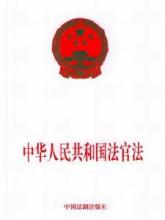
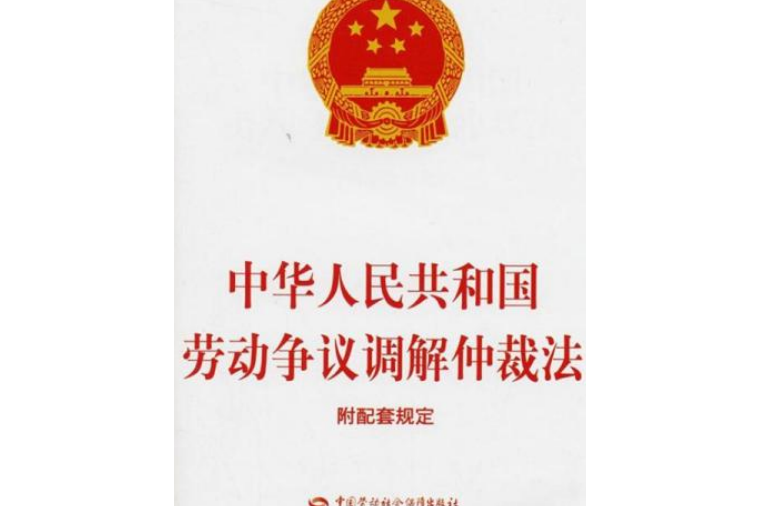
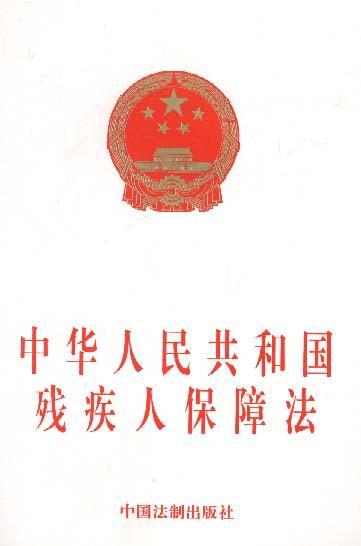
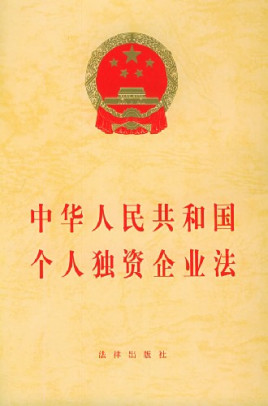
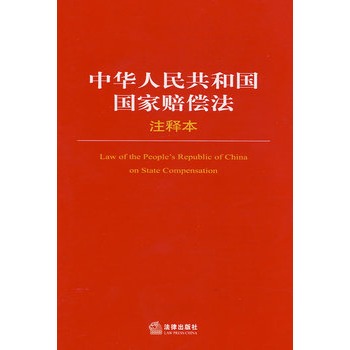
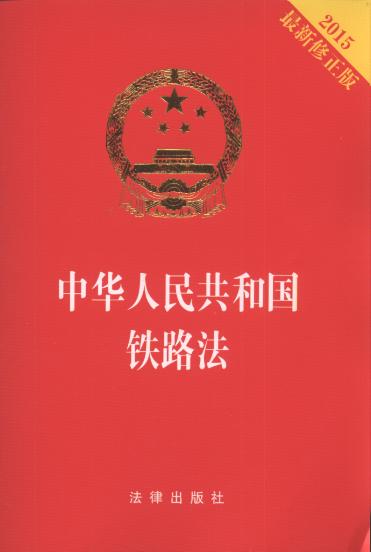
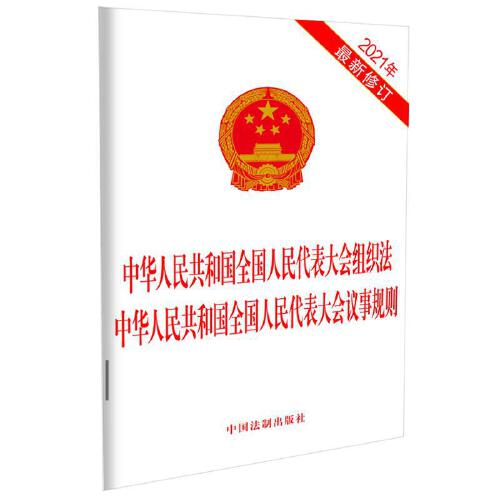


发表评论 取消回复